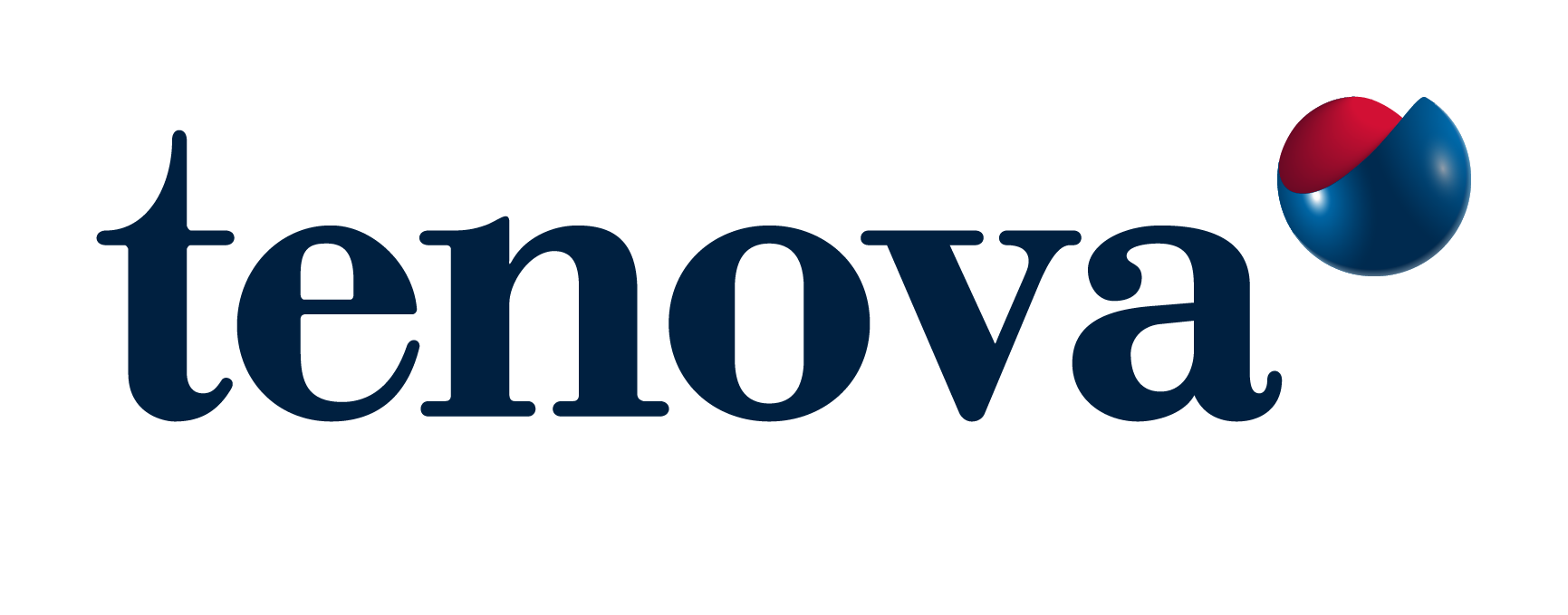Good PracticeGuidance
Gifts and hospitality may never be used to secure an improper advantage or otherwise inappropriately influence the recipient.

MTI Gifts & Business HospitalityGood Practice Guidance
Providing and receiving hospitality incidental to business meetings and occasionally to maintain and establish cordial business relationships is part of business when done in accordance with local laws and in line with MTI’s best practices that are outlined below. Giving and receiving modest gifts on occasion and in a business context may be permissible, but must always be done in accordance with local laws and in line with MTI’s best practices as set out below.
Gifts and hospitality may never be used to secure an improper advantage or otherwise inappropriately influence the recipient.
The good practices set out below are drawn from the MTI companies’ internal policies and procedures and aim to give an overview of the main points that must be addressed when implementing measures to prevent inappropriate giving or receiving of gifts and hospitality. The case scenarios below are based on the experiences and policies of the MTI companies and are offered by way of additional help to companies facing similar situations.
Everything you need to get up and running
Gifts - Anything of value given or offered to a person, it also includes anything of non-economic value such as a favour, benefit or other intangible item that is of value to the recipient.
Business hospitality – The provision of travel, transportation, lodging, meals, invitations to conferences and events, entertainment and other similar forms of treatment towards Third Parties. If no representative of the company providing the hospitality is present, then the hospitality should be treated as a gift.
Public Official – sometimes called government official these include the following persons:
- All officers and employees at any level of a government department or agency whether executive, legislative or judicial;
- Candidates for political office;
- Political party officials;
- Any official, employee or agent of an entity under government ownership or control (e.g. a state-owned enterprise); and,
- Employees of public international organizations (e.g. UN, World Bank, EBRD, OECD etc.)
Family members of any of the above should also be treated as Public Officials for the purposes of gifts and business hospitality. Any of the above who directs or asks that gifts or business hospitality be given to any other individual, should cause that individual to be treated as a Public Official.
MTI good practices
MTI companies are committed to implementing clearly articulated policies and procedures to govern the provision and receipt of gifts and business hospitality.
MTI companies are committed to designing risk-based controls that dedicate a proportionate level of resources to gifts and business hospitality risks compared to other activities.
Gifts that are received or business hospitality offered in advance of the event and that exceed policy limits will be politely declined and dealt with in accordance with a transparent procedure. Spontaneously offered business hospitality that appears likely to exceed a company’s internal policy limits should be similarly declined unless it would be highly offensive to the host to do so. In such a scenario, it would be advisable for the recipient to advise their manager/compliance at the earliest opportunity after the hospitality.
The following criteria must all be met when considering the provision of gifts or business hospitality.
- The giving of the gift or business hospitality is not intended to improperly influence the recipient to award new business or to retain existing business or to secure any other improper advantage.
- The giving or receipt of the gift or business hospitality is legal, ethical and in accordance with local social norms.
- No cash gifts or cash equivalents.
- Gift giving should be infrequent, appropriate, and always justifiable (see below for further clarification).
- Business hospitality should be incidental to legitimate business, proportionate and always justifiable.
- The proximity of gifts and business hospitality to an award of business may present increased risk and or conflicts of interest.
- Some gifts and business hospitality can expose companies to increased risks. For MTI companies these include:
- In relation to factory reference visits
- Handover events associated with turnkey projects and other similar events
- If a third party provides gifts and or business hospitality on behalf of its principal, an MTI company
Increased risks mean that stricter rules apply to all gifts and business hospitality involving Public Officials, including:
- Ensuring that the proposed gift or business hospitality is acceptable under the Public Officials’ own internal rules as well as all applicable laws and regulations.
- Applying lower monetary thresholds for approvals, and escalating levels of approvals within the business as well as compliance.
Escalating levels of approvals should be required as the risk from the provision/receipt of gifts and hospitality increases.
The following clarifications are generally considered acceptable and good practice:
- Infrequent gifts mean once per year at most, unless purely ceremonial and for general display purposes.
- All gifts should be of moderate value, low value company branded items as gifts are always preferable.
- Refreshments of modest value provided during business meetings are an acceptable form of business hospitality.
- Local travel to the city center, airport, business meeting venue or production facilities by public transport or similar, are acceptable forms of business hospitality. Local travel distances should be defined according to a company’s policy.
- Travel cost requests for third parties will include a review of the itinerary in order to avoid side trips, tourist and vacation destinations.
- For some companies, thresholds for gifts and entertainment are a valid and acceptable approach. Regional variations for such thresholds may also be reasonable in the circumstance as long as the approval for any regional policy that permits variations is given by the Head of Compliance at headquarters.
- Some internal employees and their external counterparts in third-party organizations present increased risks for receiving gifts and business hospitality in particular. For such persons it may be appropriate to further limit the giving and receipt of gifts and business hospitality or to apply strict approval criteria and additional controls.
Approvals
Approval processes take varying forms and there is no one-size fits all. MTI companies should ensure compliance with their standards through appropriate internal controls, escalations and approval mechanisms. Examples of approval processes include a scorecard or traffic lights approach. These are summarised in the Appendix as possible examples for other companies to adopt.
MTI Gifts & Business Hospitality
Case scenarios relevant to MTI companies
Scenario 1: Receiving a gift
The purchasing manager of an MTI company is visiting one of their suppliers in Asia on a supervisory visit of their plant and manufactured goods. In the past, the purchasing manager has occasionally received small tokens of appreciation such as locally sourced tea. This time, the purchasing manager has to decide on the contract extension of the supplier.
During the visit, he receives what he expects to be the usual type of gift, so he does not unwrap it until after he has returned to headquarters where he realizes that he has actually been gifted an expensive watch.
Risk factors identified
Considering the significant business decision which needs to be made by the purchasing manager, the gift can cause the suspicion that his decision was influenced inappropriately. This needs to be avoided.
Gifts of such high value are never appropriate for any employee to accept.
Below two different approaches (Acceptable and Not Acceptable) are outlined, of how the purchasing manager could handle the situation, including the MTI compliance approval rating.
Acceptable
The purchasing manager reports the incident immediately to the Compliance Department, explaining that he did not expect this high value gift.
Necessary Actions
- Transparency is of the essence. The compliance function needs to ensure that all employees are aware that before accepting any type of gift they should be certain about its content.
- If the purchasing manager had been aware of what he was receiving he should not have accepted the gift.
- He is not entitled to keep the gift as this might appear to improperly influence his business decision.
- The supplier must be informed about the Compliance Policy of the MTI-Member Company.
- These types of high value gifts are not in line with the internal procedures as they are not considered to be culturally appropriate.
To mitigate the risks outlined above, documentation of all steps should be collected by Compliance.
The gift is returned to the supplier and no further disciplinary action needs to be taken by the company. The supplier must however be informed and obliged to comply with the MTI- companies Compliance Policy in future. If these types of practices continue, termination of the business relationship needs to be considered.
Not Acceptable
The purchasing manager does not report that he received the gift. He believes that as he has already accepted the gift it is too late to return it and because he is worried about repercussions he decides not to report.
Consequences
- It is not too late to report the incident after its acceptance, as long as it is reported immediately after its knowledge. However, before accepting a gift the recipient should be certain about its content.
- Accepting the gift and not reporting it constitutes a violation of the MTI company’s Code of Conduct and or Anti-Corruption Policy.
- There is a suspicion that the gift improperly influenced a business decision.
- If it becomes public (for example by a whistleblower) that he accepted the gift and did not report it immediately, termination of his employment contract might be a necessary consequence.
- Being involved in receiving or giving high value gifts can increase the risk of undue pressure and influence being taken on the exposed employee.
As the employee has not reported the incident and because of the value of the gift, disciplinary action needs to be taken and the termination of the employment contract may be deemed necessary.
Scenario 2: Gifts and Hospitality for a Public Official
During a visit to Egypt for an industry event, one of the Sales Managers of an MTI company invites a representative of the Egyptian Department of Foreign Affairs, a casual acquaintance of his; for dinner to discuss business development opportunities in Egypt.
Two different approaches (Acceptable and Not Acceptable) are outlined, of how the Sales Manager could organize the invitation.
Risk factors identified
Risks factors and rational for the approval rating of Route B
To offer a dinner in the best restaurant in Cairo is considered luxury hospitality.
A luxury gift could reasonably be understood as an effort to improperly influence a Public Official to obtain a business advantage.
According to this MTI Gifts & Hospitality Good Practices Guidance no gift may be offered or invitation may be made if they could reasonably be understood as an effort to improperly influence a public official to obtain a business advantage.
Acceptable
The Sales Manager invites the Public Official for dinner in a well-known restaurant in Cairo, he also presents him with a small gift:
- Dinner cost for each person = 50 EUR
- Gift = book of the Company’s History
Necessary Actions
- Before inviting a Public Official to dinner and gifting any type of gifts, the Sales Manager has to contact the Compliance Manager to check if this is permitted by local law and compliant with the company’s internal guidelines.
- Approvals by the line Manager and Compliance are required.
- To ensure maximum transparency the evidence of the expenses – including the approvals – have to be stored on the internal system.
Both the dinner and the gift have been approved, as this is deemed both compliant with the local law and internal MTI-company guidelines.
Not Acceptable
The Sales Manager invites the Public Official for dinner in the best restaurant in Cairo, the invitation also includes a gift.
- Dinner cost for each person = 200 EUR
- Gift, a luxury brand wallet = 1.000 EUR
Necessary actions
- Before inviting a Public Official to dinner and gifting any type of gifts, the Sales Manager has to contact the Compliance Manager to check if this is permitted by local law and compliant with the company’s internal guidelines.
- Approvals by the line Manager and Compliance are required.
Both the dinner and the gift are not approved.
Scenario 3: Customer reference factory visit
The Sales Manager is organizing a visit to an MTI company plant for the delegation of a potential customer who wishes to review a suitable reference factory. The main purpose of the visit is promotional. At this stage, bidding preparations for the potential mandate have not yet started.
Following two different approaches (Acceptable and Not Acceptable) are outlined, indicating how the Sales Manager could organize such a visit.
Risk factors identified
Risks factors and rational for the approval rating
- To offer tickets for a performance at the theater La Scala of Milan (ticket = 500 EUR) is considered luxury entertainment
- To invite the relatives of the Delegation is not business related
- To pay the hotel for the weekend is not business related
According to the MTI G&H guidelines no offer of entertainment may be made if they could reasonably be considered as an improper advantage granted to a commercial counterpart for a business benefit.
Acceptable
The Sales Manager organizes a visit of a reference factory in Europe for a potential Chinese customer (private sector). Duration of the event: Two days (from Thursday to Friday).
The delegation consists of three representatives from the potential customer and is composed of: The CEO, a supply chain manager and a technical expert.
During the visit the following hospitality will be offered to the delegation:
- Local transportation (taxi from/to airport/plant)
- Meals and beverage (1 dinner and 2 lunch at an appropriate restaurant). The total value of the hospitality covered by the host company is ≤ 200 EUR per delegate.
G&H for the event is approved.
Not Acceptable
The Sales Manager organizes a visit of a reference plant in Europe for a potential Chinese customer (private sector). Duration of the event: Four days (from Thursday to Sunday)
The delegation consists of four representatives of the potential customer and is composed of: The CEO + his wife, the supply chain manager and a technical expert.
During the visit the following hospitality will be offered to the delegation:
- Local transportation (car with a driver) for the delegation
- Meals and beverage (3 dinners and 3 lunches at a standard restaurant).
- Lodging costs (3 nights in hotel for the delegation including relatives)
- Tickets for a performance on Saturday evening (at a famous theater - approximate ticket price = 500 EUR).
The total value of the hospitality covered by the host company is ≥ 1500 EUR per delegate.
G&H event not approved.
Scenario 4: Training at an MTI member facility
The MTI member company is visited by employees of one of its customer’s, for technical training. At this stage, the contract for supply of goods between the MTI member and the customer has been already signed.
Following two different approaches (Acceptable and Not Acceptable) are detailed:
Risk factors identified
Risks factors and rational for the approval rating
- Inviting relatives of a delegation member not business related
- Transportation for entertainment purposes not business related
- To pay for a luxury hotel for the weekend no business rationale for such accommodation
- To offer tickets for an entertainment event (ticket value = 300 EUR) is considered luxury entertainment; no business rationale for this expense
- To offer gifts for all the delegation members, including relatives (gift value = 300 EUR) considered a relevant value for a gift, not justified by normal business courtesy
Acceptable
Duration of the event is 3 days. Delegation are 5 customer employees and all technical experts.
In line with the company internal guidelines authorization for the following expenses is acquired:
- Local transportation (taxi from/to airport/plant and from/to hotel/plant)
- Meals and beverage (dinner and lunches at a standard restaurant)
The total value of the hospitality expenses covered by the MTI member company is ≤ 300 EUR per delegate.
The G&H expenses are approved.
Not Acceptable
Duration of the event is 3 days. Delegation are 5 representatives of the customer (4 employees and 1 relative): 3 technical experts, the supply chain manager and his wife.
Authorization is required for the following expenses:
- Transportation (car with a driver) for the delegation, both locally and for entertainment events
- Meals and beverage (lunches and dinner in luxury restaurant)
- Lodging costs (luxury hotel for the delegation, including relatives)
- Tickets for an entertainment event (approximate ticket price = 500 EUR)
- Gifts for all the delegation members (including relatives), with approximate value of 300 EUR each
The total value of the hospitality covered by the MTI member company exceeds 2000 EUR per delegate.
The G&H expenses are not approved.
Appendix
Examples of Approvals Procedures
Approvals procedures using a Scorecard
Giving a gift or business hospitality (together called ‘benefit’ in this example)
Questions guide the employee through an evaluation of the risk and the necessary approvals, before a benefit can be provided/accepted to/from third parties.
The questions include:
- Benefit category: Hospitality? Gift? Other benefit?
- Occasion: Proximity to a pending business decision (Y/N)
- Public Official: (Y/N)
- Frequency – within 6 months to the same recipient. (Y/N)
- Invitation of spouse, life partner, relatives or guests (Y/N)
- Value of benefit (4 ranges according to the country)
- Level of the donor/host (Senior Management, Management, Employee)
- Level of recipient/invitee (Management Board, Senior Management, Management, Employee)
According to the answers, the score is calculated automatically and also takes account of the country risk where the benefit will be provided. In addition, the following apply:
- The approval of the Line Manager is mandatory and depending on the score, Compliance Officer approval could be required before providing the benefit.
- Mandatory principles G&H must be applied, as set out in Section 3 MTI good practices above.
Accepting a benefit (the use of the scorecard is voluntary)
The questionnaire is the same as above, but its usage is voluntary. The recipient can fill it out to help guide their decision-making process, before accepting a benefit from a third party.
Internal approvals process
The approval steps depend on the value per person for the invitation, for example these could be set as follows:
- ≤ 500 EUR Line Manager and local Compliance approvals are required.
- >500 EUR Line Manager, Local Compliance and Global Compliance approvals are required.
After the final approval step, proof of the approval will be needed to serves as relevant evidence. Information about gifts and hospitality that have been subject to approvals should be appropriately documented.
Information to be recorded includes:
- Name and company of invited person
- Date/duration of the visit
- Reason for the visit
- Agenda of the visit
- Type and value of the provided benefit per person
The above information may also need to conform to data privacy requirements as well as other internal policies.
Approval procedures using a Traffic Lights system
The traffic lights approach is a multi-step approval process. Each person who is involved in approving (green light) or rejecting (red light) the request does so based on the information and documents provided by the person requesting the approval. The approval levels depend on the pre-determined thresholds up to the highest hierarchical level, where necessary. Ultimately, the application is approved only if each person involved gives a “green light”.

Secretariat & Facilitator
Commitment to Acting with Integrity in Business Practices
MTI is a business-to-business initiative that is governed by Member Meetings, which take place three times a year. Decisions are reached by consensus and the meetings are convened by a neutral third party. The Initiative is not a legal entity.
The Collective Action team at the Basel Institute acts as the facilitator and convener of the Initiative. The convener is neutral, has no conflicts of interest and is external to the industry which helps to ensure that no antitrust issues arise during the meetings. The members that participate in the meetings are senior legal and compliance officers who are also well aware of the antitrust issues and this also helps to ensure that the risks are minimized. The Basel Institute also acts as the Secretariat of the Initiative.
The Basel Institute’s team works with companies and other concerned stakeholders to develop, facilitate and moderate anti-corruption Collective Action initiatives in a variety of industry sectors. The Basel Institute also supports research and the development of the academic discourse on anti-corruption Collective Action, as well as hosting the B20 Collective Action hub.








